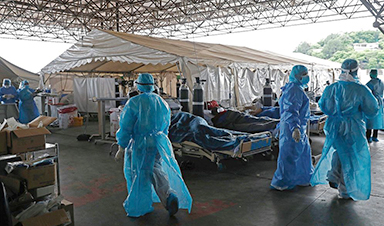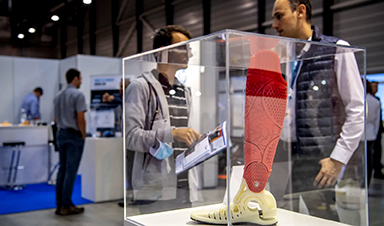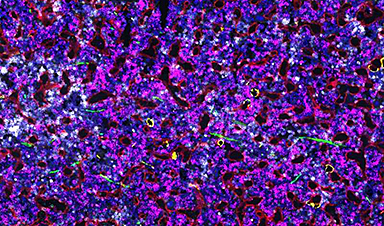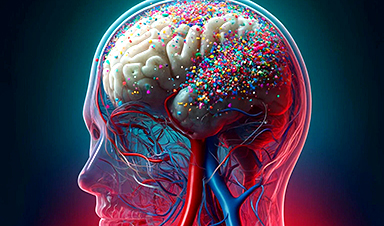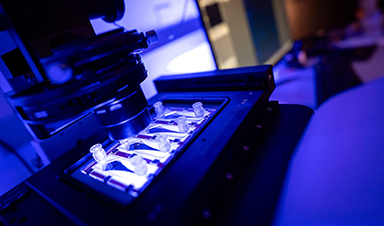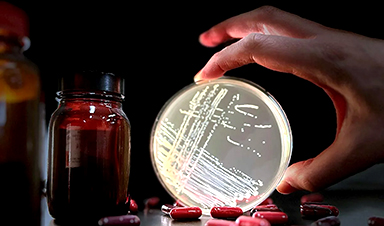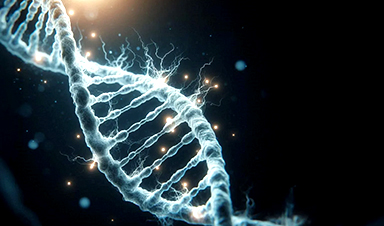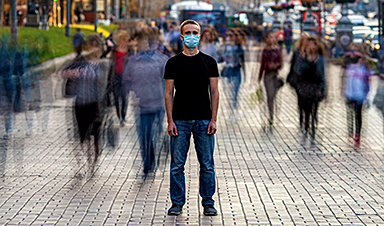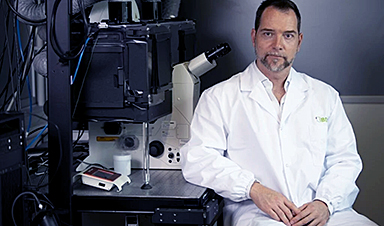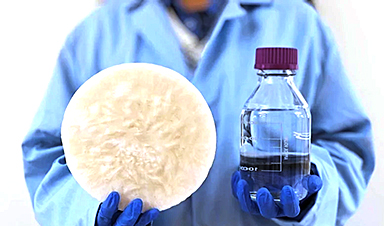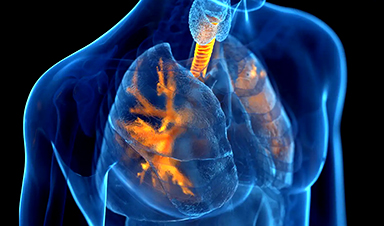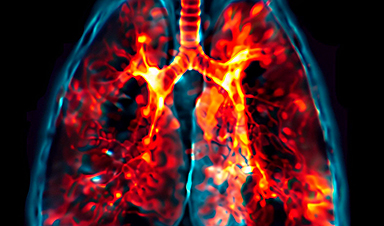The new variants of the coronavirus are even more dangerous than those known so far. Researchers and politicians fear a sharp increase in the number of infections, with dramatic consequences like those seen in Britain. Can Germany still stop the new killers?
The student didn’t really stand out among the nearly 700 cases of the coronavirus recorded by the public health department in Berlin’s Steglitz-Zehlendorf district during the week before Christmas. The young woman was home for the holidays to visit her family, having traveled back to Germany from the university where she is studying in the United Kingdom. It appeared to be an everyday case of the coronavirus in the affluent southern part of Berlin.
Indeed, it wasn’t all that surprising she had caught the virus, given that infection numbers were skyrocketing in Britain at that point.
But the student also infected her entire family, five people, which is pretty uncommon.
Just as her infection was discovered, British Prime Minister Boris Johnson had begun sounding the alarm: B.1.1.7, the new and far more contagious variant of the virus, was spreading in southeast England, he warned. The response came quickly: Flights to and from Britain were cancelled and the Eurotunnel was closed to traffic. By then, though, the mutated virus had long since begun spreading across Europe.
It was by coincidence that an employee at the Steglitz-Zehlendorf public health department had experienced the ebola pandemic in West Africa and had also earned a doctorate in virology. Shortly before Christmas, she made a call to the laboratory at the Robert Koch-Institute (RKI), Germany’s center for disease control, and asked to have the genome sequence of the student’s positive viral sample decoded.
The result arrived on Jan. 7. The student was found to be carrying the new B.1.1.7 variant of the virus.
Then, last week, the first case of B.1.351, a mutant of the coronavirus from South Africa, was detected in the southern German state of Baden-Württemberg. It’s also thought to be much more contagious than previous variants. It had been brought into the state by a family that had arrived back from South Africa in mid-December.
The family had quarantined themselves as required under coronavirus regulations, and five days later they received a negative result after getting tested. But family members developed symptoms of the disease a week later. By then, six people from three different households had been infected.
In the neighboring state of Bavaria, there are also now three confirmed cases of coronavirus mutants and one suspected case. One patient who had become infected with the British variant was brought to a Munich hospital for treatment around the New Year has since passed away.
“The new variant of the virus has arrived in Germany,” says Clemens Wendtner, chief physician at the München Klinik hospital in Munich’s Schwabing district. It must be a feeling of déjà-vu for the physician, who also treated the very first known German COVID-19 patients last February. “The next few weeks will be decisive,” Wendtner says. “It’s possible that the pandemic will take on a whole new momentum.”
Image Credit: Phill Magakoe/AFP
Post by Amanda Scott, NA CEO. Follow her on twitter @tantriclens
Thanks to Heinz V. Hoenen. Follow him on twitter: @HeinzVHoenen
News
Scientists Invent Plastic That Can Dissolve In Seawater In Just A Few Hours
Plastic waste and pollution in the sea have been among the most serious environmental problems for decades, causing immense damage to marine life and ecosystems. However, a breakthrough discovery may offer a game-changing solution. [...]
Muscles from the 3D printer
Swiss researchers have developed a method for printing artificial muscles out of silicone. In the future, these could be used on both humans and robots. Swiss researchers have succeeded in printing artificial muscles out [...]
Beneficial genetic changes observed in regular blood donors
Researchers at the Francis Crick Institute have identified genetic changes in blood stem cells from frequent blood donors that support the production of new, non-cancerous cells. Understanding the differences in the mutations that accumulate [...]
Shocking Amounts of Microplastics in the Brain – It Could Be Increasing Our Risk of Dementia
The brain has higher concentrations of plastic particles compared to other organs, with increased levels found in dementia patients. In a comprehensive commentary published in Brain Medicine, researchers highlight alarming new evidence of microplastic accumulation [...]
Baffling Scientists for Centuries: New Study Unravels Mystery of Static Electricity
ISTA physicists demonstrate that contact electrification depends on the contact history of materials. For centuries, static electricity has intrigued and perplexed scientists. Now, researchers from the Waitukaitis group at the Institute of Science and [...]
Tumor “Stickiness” – Scientists Develop Potential New Way To Predict Cancer’s Spread
UC San Diego researchers have developed a device that predicts breast cancer aggressiveness by measuring tumor cell adhesion. Weakly adherent cells indicate a higher risk of metastasis, especially in early-stage DCIS. This innovation could [...]
Scientists Just Watched Atoms Move for the First Time Using AI
Scientists have developed a groundbreaking AI-driven technique that reveals the hidden movements of nanoparticles, essential in materials science, pharmaceuticals, and electronics. By integrating artificial intelligence with electron microscopy, researchers can now visualize atomic-level changes that were [...]
Scientists Sound Alarm: “Safe” Antibiotic Has Led to an Almost Untreatable Superbug
A recent study reveals that an antibiotic used for liver disease patients may increase their risk of contracting a dangerous superbug. An international team of researchers has discovered that rifaximin, a commonly prescribed antibiotic [...]
Scientists Discover Natural Compound That Stops Cancer Progression
A discovery led by OHSU was made possible by years of study conducted by University of Portland undergraduates. Scientists have discovered a natural compound that can halt a key process involved in the progression [...]
Scientists Just Discovered an RNA That Repairs DNA Damage – And It’s a Game-Changer
Our DNA is constantly under threat — from cell division errors to external factors like sunlight and smoking. Fortunately, cells have intricate repair mechanisms to counteract this damage. Scientists have uncovered a surprising role played by [...]
What Scientists Just Discovered About COVID-19’s Hidden Death Toll
COVID-19 didn’t just claim lives directly—it reshaped mortality patterns worldwide. A major international study found that life expectancy plummeted across most of the 24 analyzed countries, with additional deaths from cardiovascular disease, substance abuse, and mental [...]
Self-Propelled Nanoparticles Improve Immunotherapy for Non-Invasive Bladder Cancer
A study led by Pohang University of Science and Technology (POSTECH) and the Institute for Bioengineering of Catalonia (IBEC) in South Korea details the creation of urea-powered nanomotors that enhance immunotherapy for bladder cancer. The nanomotors [...]
Scientists Develop New System That Produces Drinking Water From Thin Air
UT Austin researchers have developed a biodegradable, biomass-based hydrogel that efficiently extracts drinkable water from the air, offering a scalable, sustainable solution for water access in off-grid communities, emergency relief, and agriculture. Discarded food [...]
AI Unveils Hidden Nanoparticles – A Breakthrough in Early Disease Detection
Deep Nanometry (DNM) is an innovative technique combining high-speed optical detection with AI-driven noise reduction, allowing researchers to find rare nanoparticles like extracellular vesicles (EVs). Since EVs play a role in disease detection, DNM [...]
Inhalable nanoparticles could help treat chronic lung disease
Nanoparticles designed to release antibiotics deep inside the lungs reduced inflammation and improved lung function in mice with symptoms of chronic obstructive pulmonary disease By Grace Wade Delivering medication to the lungs with inhalable nanoparticles [...]
New MRI Study Uncovers Hidden Lung Abnormalities in Children With Long COVID
Long COVID is more than just lingering symptoms—it may have a hidden biological basis that standard medical tests fail to detect. A groundbreaking study using advanced MRI technology has uncovered significant lung abnormalities in [...]
